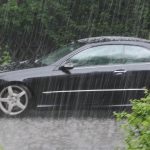 Extreme weather events, such as hail, wildfires, high winds and flooding can cause severe damage to your vehicle. Understanding how to file a weather-related damage claim can make it easier for you to be reimbursed for vehicular damage. Read on for further guidance.
Extreme weather events, such as hail, wildfires, high winds and flooding can cause severe damage to your vehicle. Understanding how to file a weather-related damage claim can make it easier for you to be reimbursed for vehicular damage. Read on for further guidance.
Does My Insurance Cover Weather-related Damage?
Specific forms of auto insurance are required in most states. Depending on your location, required coverage may include liability insurance, personal injury protection insurance and uninsured/underinsured motorist coverage. However, these coverages generally won’t help pay for damage caused by noncollision incidents, such as weather-related damages. Comprehensive insurance coverage is essential to ensure adequate financial protection from these events. Although this coverage isn’t typically required, it can help prevent costly out-of-pocket expenses if your vehicle is damaged from a storm or natural disaster.
How Do I File a Weather-related Damage Claim?
The following are general guidelines for filing a claim following weather-related damage to your vehicle:
- Contact your insurance company. Report the damage to your insurance company as soon as possible. Some insurers will set up emergency disaster relief programs to expedite claims following widespread disasters, such as major hurricanes and violent tornados.
- Prioritize safety. Don’t risk driving a vehicle that could have serious problems. Although damage can be easy to spot (e.g., dents from hail), some damage may be difficult to notice without a proper inspection. Leave your car where it is and don’t attempt to drive it before an insurance adjuster arrives if there’s a chance it could have sustained damage.
- Assess the condition of your vehicle. Make a quick assessment of vehicular damage if it’s safe to do so. Look for signs of extensive damage and indications that the car may not be drivable.
- Document the damage. Gather visuals of the damage, such as photos and videos. You should also note anything that seems wrong (e.g., a strong smoke smell when driving). Provide this information to your insurance company to help them evaluate the loss.
- Be patient. Auto insurance companies often receive a deluge of insurance claims following an extreme weather-related event, such as a wildfire or hurricane. Be prepared to wait and try to remain patient during the claims process.
Finding and maintaining the right auto insurance policy is crucial to ensuring you’re financially protected from weather-related events. Work with Rinehart, Walters & Danner to ensure you have sufficient protection.
Contact Us
The agents at Rinehart, Walters & Danner are here to answer your insurance questions. Contact us today to learn more.